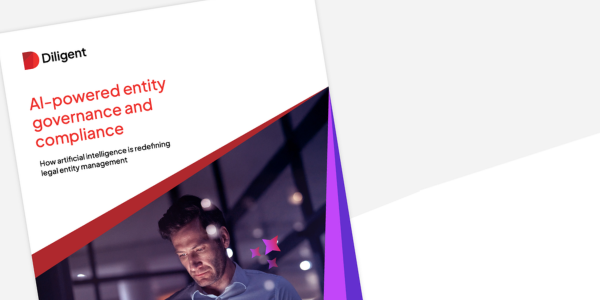How general counsels are stepping up as unlikely AI champions

General counsels today are navigating a moment of rapid change, and rising pressure. From mounting regulatory demands to increasing board visibility, the GC’s role is expanding, fast. At the same time, AI is maturing from buzzword to board-level priority. The question facing most legal leaders isn’t whether to engage with it, but how.
According to FTI Consulting's The General Counsel Report 2025, more than two-thirds of GCs are now open to using generative AI for major legal use cases — and nearly half say they’re already doing so. At the same time, three out of four legal departments admit they don’t yet have a technology roadmap. That gap between ambition and action is exactly where opportunity — and risk — sits.
Today’s GCs are being asked to do more with less, manage more complexity with fewer resources, and ensure better governance without adding friction. And increasingly, they're exploring how AI can help. From summarizing board materials to monitoring compliance gaps and simplifying entity oversight, AI is starting to take root across the legal department.
But the most successful legal leaders aren’t chasing the flashiest use cases. They’re focused on applying AI where it can solve real, recurring problems — faster, more accurately, and securely. In this article, we look at how forward-thinking GCs are using AI to strengthen both board governance and legal compliance, while maintaining control over the risks that come with any emerging technology.
Reimagining governance with AI
Boards today rely on GCs for more than legal advice — they expect clarity, risk perspective and strategic input. But preparing for board meetings can be an administrative drain. Gathering past materials, formatting documents, cross-checking disclosures, and tracking action items often eats into time that should be spent shaping recommendations.
This is where AI is proving useful. With purpose-built AI tools now integrated into board management software, legal teams can streamline how they build, review, and distribute board materials — without sacrificing control.
Solutions like Diligent Boards' GovernAI suite, for instance, offer advanced capabilities tailored for board governance. They help legal and wider governance teams:
- Automatically compile and format board books using past agendas, filings, and templates
- Surface potential legal and regulatory risks before materials are distributed
- Condense large volumes of board content into accurate, digestible summaries
- Deliver personalized meeting prep that highlights open questions and unresolved action items
- Track changes, generate minutes, and monitor follow-ups with transparency
For GCs, this means more than just administrative efficiency — it means deeper influence. With AI assisting in preparation and follow-through, legal leaders can help boards stay focused, aligned and informed.
Put AI to work in your boardroom
Discover how GCs are using AI to simplify board prep, improve compliance and save hours — all while increasing their strategic impact when it matters most.
Show me howElevating legal entity management
Beyond the boardroom, GCs are increasingly responsible for maintaining the integrity of the organization’s legal structure and staying ahead of a shifting compliance landscape.
With regulatory expectations rising and scrutiny intensifying, legal teams can no longer afford fragmented systems or manual processes. They need structured, accurate, and accessible entity data — and that’s where AI is proving transformative.
AI-powered entity management platforms like Diligent Entities give legal teams new visibility and control over corporate records and compliance obligations. With automation handling routine data entry, validation, and document formatting, and AI surfacing key information in seconds, legal teams can:
- Instantly access and query entity data through AI assistants
- Automatically extract key clauses, obligations, and deadlines from documents
- Generate and update org charts with accurate, real-time information Compile audit-ready reports with fewer errors and faster turnaround
For GCs, this means less time chasing details — and more time advising leadership, preparing for transactions, and ensuring regulatory readiness. As automation removes inefficiencies, and AI adds intelligence, legal departments evolve from operational hubs into strategic enablers.
Still buried in spreadsheets?
See how AI is helping legal and compliance teams move faster, cut risk and escape manual work — so you can lead with sharper data and more time to think.
Make my job easierAI isn’t replacing legal teams — it’s making them more effective
The value of AI in legal work isn’t about chasing the newest trend. It’s about focusing legal teams on work that moves the business forward. Automating the parts of the job that are repetitive or time-sensitive — and freeing up time for deeper thinking, analysis, and advice.
Whether it's preparing the board for a critical vote or supporting an internal compliance review, GCs are using AI to improve the quality, speed, and confidence of their contributions.
And while not every AI tool is created equal, purpose-built solutions designed for governance and legal workflows are already delivering value — with the control, security and accuracy legal teams demand.
The road ahead: Confident, responsible adoption
AI is here. But adopting it well takes more than interest — it takes leadership. GCs are in a unique position to shape how their organizations adopt AI: thoughtfully, securely, and with clear outcomes in mind.
This doesn’t mean legal teams need to overhaul their operations overnight. It means starting where AI can help most — board preparation, compliance tracking, or entity reporting — and building from there.
With the right tools and the right approach, GCs are proving they’re not just advisors to AI adoption. They’re leading it.
Experience the advanced AI capabilities of Diligent Boards and Diligent Entities to elevate your governance strategy with confidence and security. Schedule your demo now.

